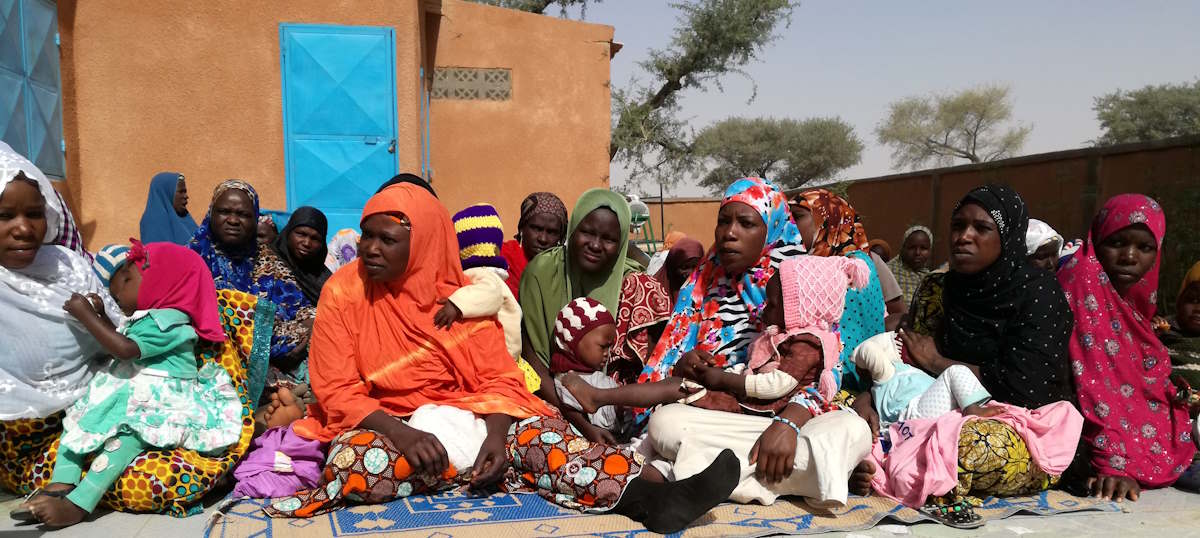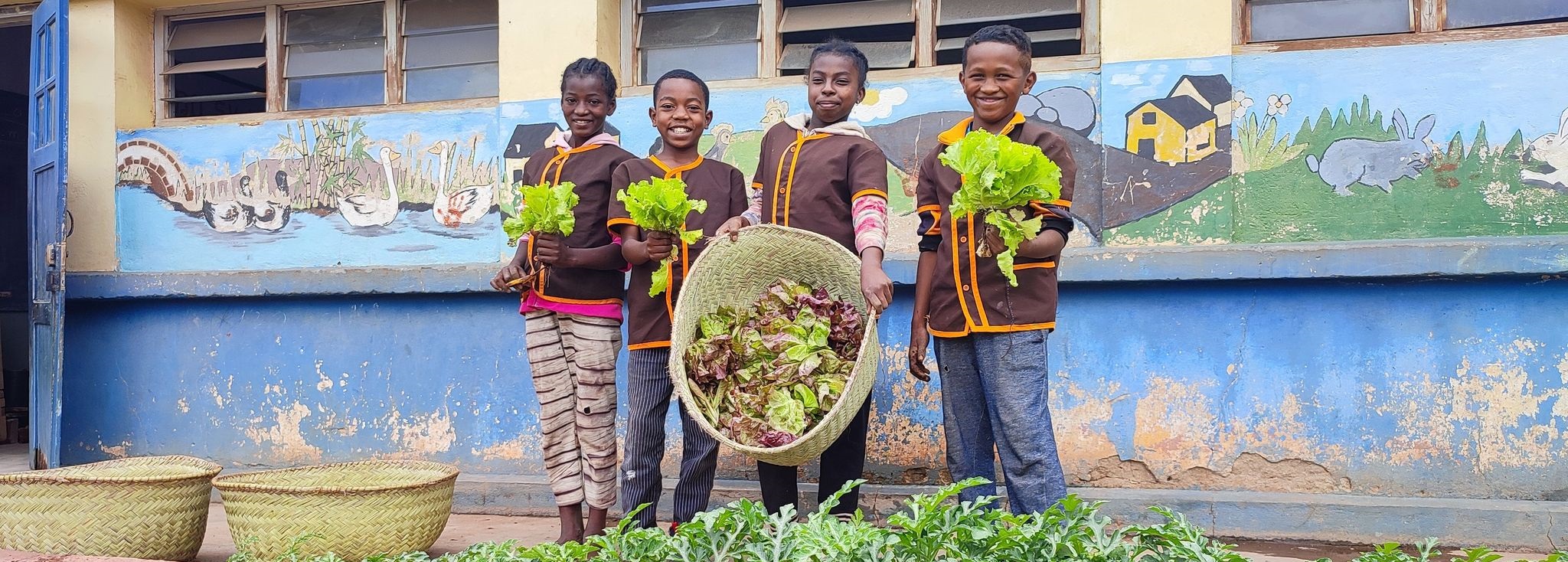As part of its project to support food fortification in Niger (Pafan), GRET is testing and implementing an innovative approach to raise awareness on nutrition based on Nutricartes®, a fun game for nutrition education.
To do this, GRET is being supported by international solidarity association l’Appel, and is benefitting from the association’s know-how and experience to train its team and ensure close monitoring for quality implementation.
An interactive, fun, pedagogical method
The Nutricartes® approach, thanks to its fun, interactive nature in the form of a game, highlights the pillars of good nutritional health for children, focusing in particular on the role played by each food. It is also based on an active pedagogy facilitating transmission and appropriation of key messages on recommended feeding and health practices, drawing on the previous knowledge and skills of the women targeted. In addition, appropriation of proposed nutrition practices is facilitated by peer exchanges and thanks to the enjoyment offered by Nutricartes®. This practical approach makes it possible for women to perfect their knowledge on feeding and distinguish between foods referred to as body building, protective and high-energy.
The project team adapted the game to the local context, with each card representing foods and drinks consumed in Niger, taking care to include the fortified infant flours developed as part of the Pafan project.
“With the Nutricartes® awareness-raising activities initiated by GRET, we have learnt a huge amount on nutrition education. The activity is practical and fun, all of the women attend all the sessions!”, explains Fatouma Adamaou, chairperson of the Samaharey group in Niamey.

How does the Nutricartes® approach work?
A Nutricartes® cycle is organised with a group of 12 people and is made up of five successive weekly sessions. During these sessions, the women develop their knowledge on various types of foods, until they are able to compose menus with high nutritional value, and that cost less, for themselves and their children.
The sessions are facilitated by a duo made up of a facilitator and a co-facilitator, who ensure effective participation and understanding by everyone in the group. The game is easy to set up, with a Nutricartes® kit and a four-coloured fabric game mat, representing each food category: red for body building foods, yellow for energy foods, green for protective foods and blue for water.

Continuous learning for greater impact on changes in dietary, healthcare and hygiene practices.
During the first sessions of the game, participants’ involvement was immediately visible and their feedback revealed their willingness to participate in the next sessions. This feedback appears to confirm that Nutricartes® makes it easier to learn the key nutrition messages than conventional awareness-raising sessions. All these factors demonstrate a high level of satisfaction, and favours the women’s adoption of practices discussed during the sessions.

“Before this training, we were eating and cooking all sorts of foods without distinguishing between what is essential and nutritious for the body, and what is not. But thanks to this training, we learnt a lot about foods – those that are nutritious, rich in vitamins and energy, that are important for the body. The Nutricartes® training also enabled us to manage our financial resources better; we now spend less and eat well. With just a little money, we can find all condiments at the market to cook a tasty nutritious dish for the whole family. For this training, we chose the most committed women in our group. This made it possible to ensure exemplary participation and attendance throughout the five weeks of training. We made a commitment to share the experience widely with our other sisters. We are also advocating so that other women’s groups can benefit from this training and we can share this experience in the entire department, or even the entire region”, says the chairperson of the Haské group in Matameye.
Continuing the adventure
In March, 18 groups completed the five sessions and were successfully evaluated in three areas of Niger: Niamey, Tessaoua and Matamey. 228 women were trained in the Nutricartes® approach.
Despite the difficulties related to the context of the Covid-19 pandemic, monitoring and evaluation of the implementation of Nutricartes® is being strengthened through the partnership with l’Appel, which is continuing to follow and guide GRET’s teams by sharing photos and videos of sessions via a WhatsApp group.
GRET is now continuing implementation and evaluation of this pilot approach, making it possible to draw lessons to train more groups in Nutricartes®, through the Pafan project on the one hand, but also in other countries of operation where it is conducting activities related to health and nutrition.






